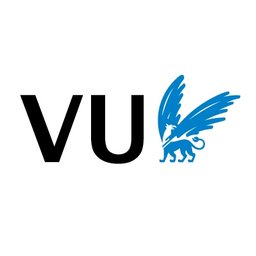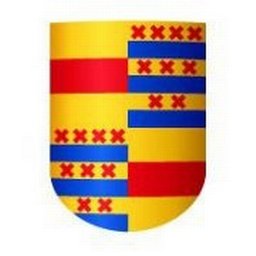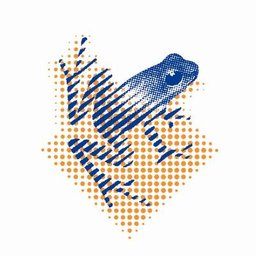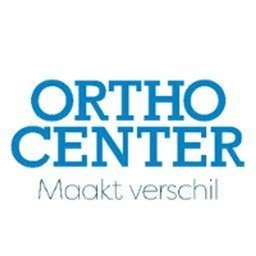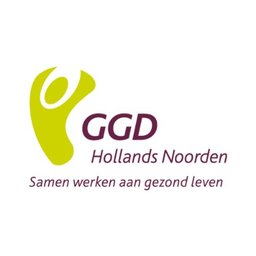Your function
Our research team invites applications for a fully-funded PhD position at the intersection of reconfigurable computing, accelerators, and simulation tools. This position aims to investigate strategies for programming, modeling, and integrating reconfigurable/spatial architectures, such as FPGAs and AI accelerators, within heterogeneous ICT ecosystems.
Your duties
Reconfigurable/Spatial computing architectures, such as FPGAs, CGRAs, and AI accelerators, offer significant opportunities for improving performance and energy efficiency compared to traditional CPUs/GPUs. These devices provide massive spatial parallelism and are well-suited for dataflow programming paradigms. However, optimizing and porting code efficiently to these architectures remains a key challenge. This project will explore how reconfigurable computing devices can be integrated into large-scale heterogeneous infrastructures, which include CPUs, GPUs, DPUs, and others. The research will focus on addressing the complexity of the device-software-application-data design space, enabling systematic and efficient exploration using modeling and simulation tools.
Key Responsibilities
- Identify and characterize target workloads for the FNS 6G initiative (e.g., data analytics pipelines, network functions virtualization, data‑plane acceleration).
- Investigate what techniques and abstractions are most effective for designing and optimizing applications for reconfigurable/spatial computing architectures (HW/SW co-design)
- Extend or build simulation or modeling frameworks to support systematic exploration of mapping and scheduling strategies across CPUs, GPUs, DPUs, and reconfigurable devices.
- Demonstrate seamless deployment of hybrid workflows in large‑scale, heterogeneous infrastructures.
Your profile
We are looking for a candidate who meets the following qualifications:
- A Master’s degree in Computer Science or a related field (completed before the start date of the PhD).
- Strong academic background and competencies in parallel programming and distributed computing.
- Knowledge of hardware programming, high-level synthesis tools, and spatial computing architectures (e.g., FPGAs, AMD AI Engine, Tenstorrent) is a plus.
- Familiarity with computing simulation tools is a plus.
- Excellent oral and written communication skills in English.
- Strong organizational skills and the ability to work both independently and as part of a team.
- Proactive and enthusiastic about addressing cutting-edge research challenges.
.
What do we offer?
A challenging position in a socially engaged organisation. At VU Amsterdam, you contribute to education, research and service for a better world. And that is valuable. So in return for your efforts, we offer you:
- a salary of € 2.901,00 (PhD) and maximum € 3.707,00 (PhD) gross per month in the fourth year, for a full-time employment
- an employment contract of initially 18 months. If there is sufficient perspective, this will be extended to a total of 4 years. Your dissertation at the end of the fourth year forms the end of your employment contract.
We also offer you attractive fringe benefits and arrangements. Some examples:
- A full-time 38-hour working week comes with a holiday leave entitlement of 232 hours per year. If you choose to work 40 hours, you have 96 extra holiday leave hours on an annual basis. For part-timers, this is calculated pro rata.
- 8% holiday allowance and 8.3% end-of-year bonus
- solid pension scheme (ABP)
- contribution to commuting expenses
- optional model for designing a personalized benefits package
About us
About the project and group
Join the frontier of innovation in 6G: the future of mobile network technology. A unique Dutch alliance, comprising 60 leading ICT businesses, mobile operators, semiconductor manufacturers and research institutions, have united to spearhead the development of specific aspects of 6G: Software antennas, AI-driven network software, compute stack, and groundbreaking 6G Applications.
This candidate will be embedded in the Massivizing Computer Systems (MCS) group, which focuses on research in distributed computing systems and ecosystems, and currently spans over 40 diverse people of which 3 staff. The group aims to contribute to solving high-challenge, high-impact scientific and societal challenges, and has much international and national visibility in research and education in computing systems. The group chair, Prof. Iosup, has received prestigious national awards for both research and education, and has been inducted in the (Young) Royal Netherlands Academy of Arts and Sciences. The MCS group has a central role in organizing the national and international computer systems communities, and has played leading roles in organizing top-tier conferences (e.g., HPDC, ICPE, CCGRID) and journals (e. g., IEEE TPDS). The MCS group publishes in high-quality conferences, journals, and magazines, and has an outsized presence in conducting grand experiments and in releasing FAIR data and software artifacts. The group has long-lasting links with national and international organizations, and plays a leading role in international academic-industrial partnerships, such as the SPEC Research Group and the LDBCouncil. Last, but not least, the MCS group has a sustained and leading presence in developing young talent through individual supervision and embedding in large, cross-disciplinary, international teams..
The department of Computer Science has approximately 170 staff members, including 35 tenured staff and approximately 90 Ph.D. students. Much of the research with the department is embedded in the Network Institute of Vrije Universiteit, covering beyond Computer Science and Artificial Intelligence disciplines such as Social Sciences, Humanities, and Economics. The Department also actively participates in Amsterdam Data Science, a collaboration between more than 600 data science researchers from different institutions in Amsterdam. The department has a nationally and internationally visible scientific presence and impact, e.g., in computer systems, software engineering, AI/ML, bioinformatics.
Faculty of Science
Researchers and students at VU Amsterdam’s Faculty of Science tackle fundamental and complex scientific problems to help pave the way for a sustainable and healthy future. From forest fires to big data, from obesity to malnutrition, and from molecules to the moon: we cover the full spectrum of the natural sciences. Our teaching and research have a strong experimentally technical, computational and interdisciplinary nature.
We work on new solutions guided by value-driven, interdisciplinary methodologies. We are committed to research, valorisation and training socially engaged citizens of the world who will make valuable contributions to a sustainable, healthy future.
Are you interested in joining the Faculty of Science? You will join undergraduate students, PhD candidates and researchers at the biggest sciences faculty in the Netherlands. You will combine a professional focus with a broad view of the world. We are proud of our collegial working climate, characterised by committed staff, a pragmatic attitude and engagement in the larger whole. The faculty is home to over 11,000 students enrolled in 40 study programmes. It employs over 1,600 professionals spread across 10 academic departments.
Vrije Universiteit Amsterdam
Vrije Universiteit Amsterdam stands for values-driven education and research. We are open-minded experts with the ability to think freely - a broader mind. Maintaining an entrepreneurial perspective and concentrating on diversity, significance and humanity, we work on sustainable solutions with social impact. By joining forces, across the boundaries of disciplines, we work towards a better world for people and planet. Together we create a safe and respectful working and study climate, and an inspiring environment for education and research. Learn more about our codes of conduct
We are located on one physical campus, in the heart of Amsterdam's Zuidas business district, with excellent location and accessibility. Over 6,150 staff work at the VU and over 31,000 students attend academic education.
Diversity
Diversity is the driving force of VU Amsterdam. VU wants to be accessible and receptive to diversity in disciplines, cultures, ideas, nationalities, beliefs, preferences and worldviews. We believe that trust, respect, interest and differences lead to new insights and innovation, to sharpness and clarity, to excellence and a broader understanding.
We want to develop talent and creativity by bringing together people from different backgrounds and cultures. We recruit and select based on competencies and talents. We therefore encourage anyone who recognizes themselves in a vacancy, regardless of age, gender, origin, religion, philosophy of life, orientation, disability or chronic illness, to respond. Candidates with a jobs agreement indication (“doelgroepregistratie”) will be given priority if suitable. For these candidates applies:
- A PhD candidate with a registration (“doelgroepregister”) may apply for a minimum of 0.7 fte
- An extra supervisor is available for PhD students with target group registration and their supervisors.
Interested
Are you interested in this position, and do you believe that your experience will contribute to the further development of our university? In that case, we encourage you to submit your application and upload the following material:
- a cover letter (max. 2 pages). Please indicate why you are applying for this position and include contact details for two references (people who worked with you).
- Your updated curriculum vitae.
- All BSc/MSc transcripts, including classes taken and grades
Applications will be reviewed on a rolling basis, and we reserve the right to talk to candidates and fill the position before the deadline. Submitting a diploma and a reference check are part of the application process
Applications received by e-mail will not be considered.
Acquisition in response to this advertisement is not appreciated.
